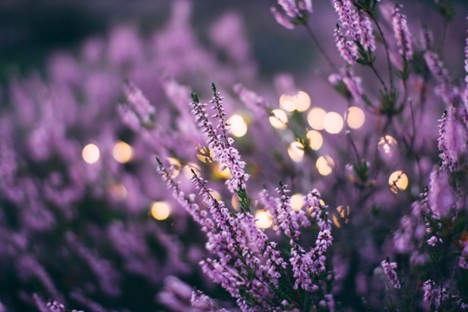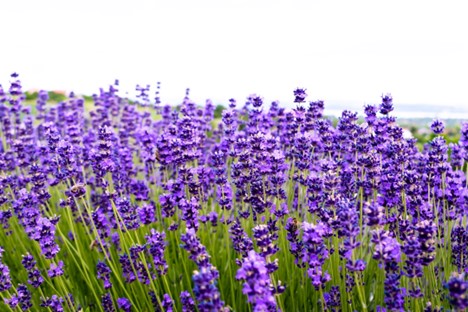Do you struggle to fall asleep at night? Do you find yourself tossing and turning, unable to quiet your mind and relax? If so, you’re not alone. According to the National Sleep Foundation, 50-70 million adults in the United States have a sleep disorder, with insomnia being the most common.
Fortunately, there are natural remedies that can help you achieve a peaceful night’s sleep. One of the most effective and enjoyable methods is through aromatherapy. In this article, we’ll explore the benefits of aromatherapy for sleep and how you can incorporate it into your nightly routine.
What is Aromatherapy?
The Power of Scent
Aromatherapy is the practice of using essential oils and other natural scents to promote physical and emotional well-being. Essential oils are highly concentrated plant extracts that contain the essence of the plant’s fragrance and healing properties.
 by Denise Chan (https://unsplash.com/@elchan)
by Denise Chan (https://unsplash.com/@elchan)
When inhaled, the scent of essential oils can stimulate the olfactory system, which is responsible for our sense of smell. This system is connected to the limbic system, which controls emotions, memories, and hormones. This is why certain scents can evoke strong emotional responses and have a powerful impact on our mood and well-being.
Aromatherapy for Sleep
Aromatherapy has been used for centuries to promote relaxation and improve sleep. The calming scents of essential oils can help reduce stress and anxiety, quiet the mind, and prepare the body for a restful night’s sleep.
The Best Essential Oils for Sleep
Lavender
Lavender is one of the most popular essential oils for sleep. Its soothing and calming properties make it an excellent choice for promoting relaxation and reducing anxiety. Studies have shown that inhaling lavender can improve sleep quality and reduce symptoms of insomnia.
Chamomile
Chamomile is another popular essential oil for sleep. Its sweet, floral scent is known for its calming and sedative effects. Inhaling chamomile can help reduce stress and promote relaxation, making it easier to fall asleep.
Bergamot
Bergamot is a citrusy essential oil that is known for its mood-boosting properties. It can help reduce anxiety and promote relaxation, making it a great choice for those who struggle with racing thoughts at night.
Sandalwood
Sandalwood has a warm, woody scent that is known for its calming and grounding effects. It can help reduce stress and promote relaxation, making it a great choice for those who have trouble quieting their mind at night.
How to Use Aromatherapy for Sleep
Aromatherapy Diffusers
 by Mulyadi (https://unsplash.com/@mullyadii)
by Mulyadi (https://unsplash.com/@mullyadii)
One of the most popular ways to use aromatherapy for sleep is through a diffuser. A diffuser is a device that disperses essential oils into the air, allowing you to inhale the scent and experience its benefits. There are many different types of diffusers available, including ultrasonic, nebulizing, and heat diffusers.
To use a diffuser for sleep, add a few drops of your chosen essential oil to the water reservoir and turn it on before going to bed. The diffuser will release a fine mist of essential oils into the air, creating a calming and relaxing atmosphere in your bedroom. See our top pick here.
Aromatherapy Candles
Aromatherapy Candles are another popular way to use essential oils for sleep. They not only provide a soothing scent but also create a warm and cozy atmosphere in your bedroom. When choosing an aromatherapy candle for sleep, look for one that is made with natural ingredients and essential oils, rather than synthetic fragrances.
Pillow Sprays
Pillow sprays are a convenient and effective way to use aromatherapy for sleep. These sprays are typically made with a blend of essential oils and water, and can be sprayed directly onto your pillow and bedding. The scent will linger throughout the night, promoting relaxation and helping you fall asleep faster.
Essential Oil Roll-Ons
 by Daiga Ellaby (https://unsplash.com/@daiga_ellaby)
by Daiga Ellaby (https://unsplash.com/@daiga_ellaby)
Essential oil roll-ons are a portable and easy way to use aromatherapy for sleep. These roll-ons are pre-diluted with a carrier oil, making them safe to apply directly to the skin. Simply roll the oil onto your wrists, temples, or the back of your neck before bed for a calming and relaxing effect.
Tips for Incorporating Aromatherapy into Your Nightly Routine
Create a Relaxing Atmosphere
To fully experience the benefits of aromatherapy for sleep, it’s important to create a relaxing atmosphere in your bedroom. This means keeping the room cool, dark, and quiet. You can also add calming elements such as soft lighting, comfortable bedding, and soothing music to help you unwind.
Use a Variety of Scents
While lavender is often considered the go-to scent for sleep, it’s important to experiment with different scents to find what works best for you. Some people may find that chamomile is more effective for them, while others may prefer the uplifting scent of bergamot. Don’t be afraid to try different essential oils and blends to find what helps you relax and fall asleep.
Be Consistent
 by Nikolett Emmert (https://unsplash.com/@niki_emmert)
by Nikolett Emmert (https://unsplash.com/@niki_emmert)
To experience the full benefits of aromatherapy for sleep, it’s important to be consistent with your routine. This means using the same essential oils and methods every night, and incorporating aromatherapy into your bedtime routine. Over time, your body will begin to associate the scent with relaxation and sleep, making it easier to fall asleep.
Conclusion
Aromatherapy is a natural and effective way to promote relaxation and improve sleep. By incorporating calming scents into your nightly routine, you can transform your nights into sweet dreams. Experiment with different essential oils and methods to find what works best for you, and enjoy the benefits of a peaceful and restful night’s sleep.